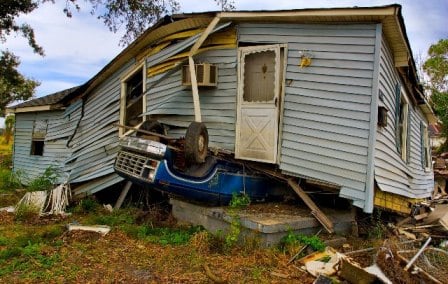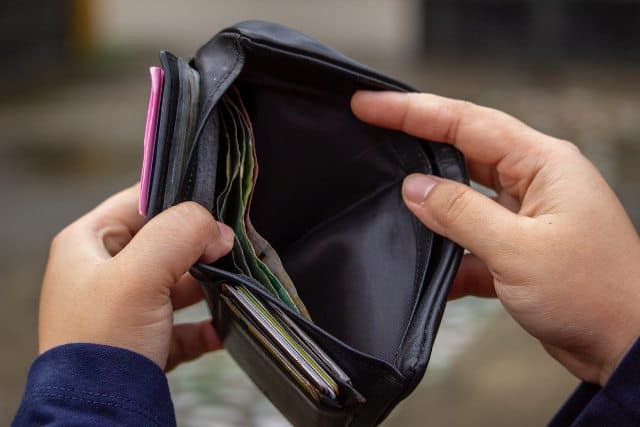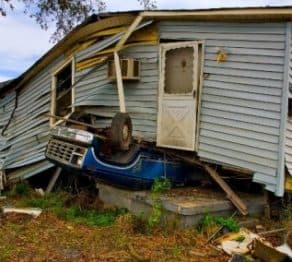What They Didn’t Tell You About Emergency Funds
An emergency fund is a short-term investment created by someone who wants a financial cushion. This easy access interest bearing account is typically deployed to shield themselves, and their families in the event of a personal financial crisis. Everyone goes through money problems every now and then. Those are supposed to be short-lived with minimal consequences to the comfort and well-being of the individual.
But sometimes, such unforeseen circumstances could have dire consequences especially if you don’t have people or assets to fall on; or have access to a bail out from support groups in your country. An Emergency could have both PROS and CONS. This side of the coin is what most people are not talking about today.
The Current View of an Emergency Fund

The Standard Motive
Today many emergency funds are built with a dual intent. Hopefully, this standard will outweigh other safety net strategies with only a singular objective. The fund is typically meant to pay yourself a monthly cash amount that covers your living expenses. The duration would range between 3 months to 12 months. The other purpose for having such a fund in place is to be able to withdraw a lump sum to cover an emergency. This could be health related, or repairs to your home, car, or other asset.
Typical Accounts
The default accounts used to hold most emergency funds are savings accounts; especially those with higher yields. The premise here is to have a fair amount of interest payments to make up for inflation friction, as well as a readily accessible instrument that is always available with short notice. The downside risk of the fund is quite vital. This is because you can’t afford to lose it in a riskier equity investment – whose volatility may prove problematic if you needed to access funds during a down market.
The Fund’s Size
Size really does matter when it comes to money emergencies. The minimum provision for your financial parachute should be in the region of 3 months. However, a 6 month to 12 month worth of living expenses would be prudent. With a 12 month threshold, you will have room to rebound after a job loss or sudden illness. So an estimated annual income of $50K will provide you with about $20K (6 month fund) to $40K (12 month fund) in emergency savings.
Basic Calculations of an Emergency Fund
If the above numbers didn’t make much sense to you, here is a brief run through. Let’s assume a $48,000 after-tax income for an individual named Jason. Jason would have a monthly cash of $4,000 in the bank. If he uses the 50-30-20 budget (or some other budget system), he could isolate his total living expenses as between 50% to 80% of his paycheck (the needs and wants math). Jason may prefer a bit more room for his money – so he does 80% of $4,000 which is $3,200. This amount times 6 months is: $19,200. A year’s equivalent would be $38,400.
Saving up $38,400 with 20% (3rd segment of the 50-30-20 budget = $800) per month, Jason would need 48 months – that is 4 years to save up. The underlying interest bearing account will eventually shorten the loading phase quite.
The Uncertainties of Life

Individual Loss
Life may move swimmingly well for most people until the unthinkable happens. These financial trials may occur when you least expect it. Generally, the uncertain events may happen to individuals and/or their families. Having insurance in place will give you a good stand – but this is limited to the exact areas that are covered by the policy.
Sage Tip: Why am I Always Struggling Financially? 6 Steps to Fix It
Economic Turmoil
Another uncertain event that can happen to you could be an economic crisis. These are caused by triggers and catalysts that you do not have control of. The consequence may be a job loss or even hyper inflation. These events are usually short-lived by would leave many financially unprotected families in ruin.
Global Crisis
A global crisis could be in the form a health crisis, such as the Corona pandemic. There is also the threat of economic shortages, or war – depending on the region of your location. As much as possible, financial freedom requires a prudent provision to these types of risks to your financial security.
A New Perspective on Emergency Funds

The Problem
As humans, we create new problems as we try to fix current ones. This is nothing strange. The wheels of commerce revolve better because more people will emerge with innovation to solve those problems; and they’ll be rewarded as such. In that light we can suggest that businesses exist to solve from problems. And all problems have a source.
Our focus in changed from optimistic investor to pessimistic control freak. What we focus on expands. What we fear the most is what we will eventually attract. So the more we focus on crisis, guess what? That is exactly what we are going to attract. What we focus on truly expands. Consequently, we won’t be disappointed when they show up as expected.
A New Motive
Instead of creating a crisis fund for unforeseen money troubles in the future, let’s create a way to take advantage of those circumstances if they ever occur. Your opportunity will be used to buy undervalued assets such as stocks trading below their intrinsic value, or real estate selling at distressed prices due to high pessimism in economic hard times. Remember that this same fund can also bring personal relief in terms of needed cash flow for your emergency use. But the main difference here is the original motive of the fund.
Secondly, as your opportunity could grow indefinitely waiting for a prospect to present itself. This is your own private vulture fund that thrives in the event of economic downturns. But as the fund grows, you would still take some profit from the top to serve charitable purposes. You would be able to stand in the gap and help others in need (who didn’t have an emergency fund in place).
Investments
Building an opportunity fund can be so empowering. This represents your war chest for going into financial battles. You may place allocations in cash equivalents or money market funds for easy access; then allocate the rest into Index funds, ETFs, and individual stocks for onward growth. But what if your portfolio takes a hit in a down market? Having a well diversified stash of assets that is agile can be beneficial. Meaning, you could move out of overpriced situations using portfolio re-balancing over the course of your fund’s life.
Discover More: Personal Finance Tips for Financial Achievement
New Prospects
As you sit tight waiting for favorable opportunities, you might want to have an asset class wish list. This may include stocks trading publicly, or unlisted securities, real estate, or your neighbor’s minivan. The whole point is to own things that are selling cheaper today, to flip later or hold for growth. You are no longer focused on unexpected personal hard times, but alleviating hardship that has befallen others – for profit of course.
Sage Tip: When should you start an emergency fund?
Conclusion
An emergency fund functions as a store for your crisis nest egg. It has been used successfully over many years, and for several generations. Why change something that is not broken? If you already have one in place or are planning to create one – then let this be an eye opener. It’s time to innovate. Why not move from good to great. The premise alone about helping others are quite sound. A stronger money mindset does not typically focus on risk or fear; but opportunity. And through opportunity come growth, and also the blessing of learning from our mistakes.
Do you have an original emergency fund in place? Please state in the comments below is you’re considering this new paradigm as a challenge or a by-pass?
Most Popular Posts:
- 12 Giant Steps Financial Freedom Seekers Take To Retire Early (Epic List !!!)
- Learn to Trade Stocks Step by Step for Beginners (A Comprehensive Guide)
- Top 10 Financial Freedom Courses (Mostly FREE)


